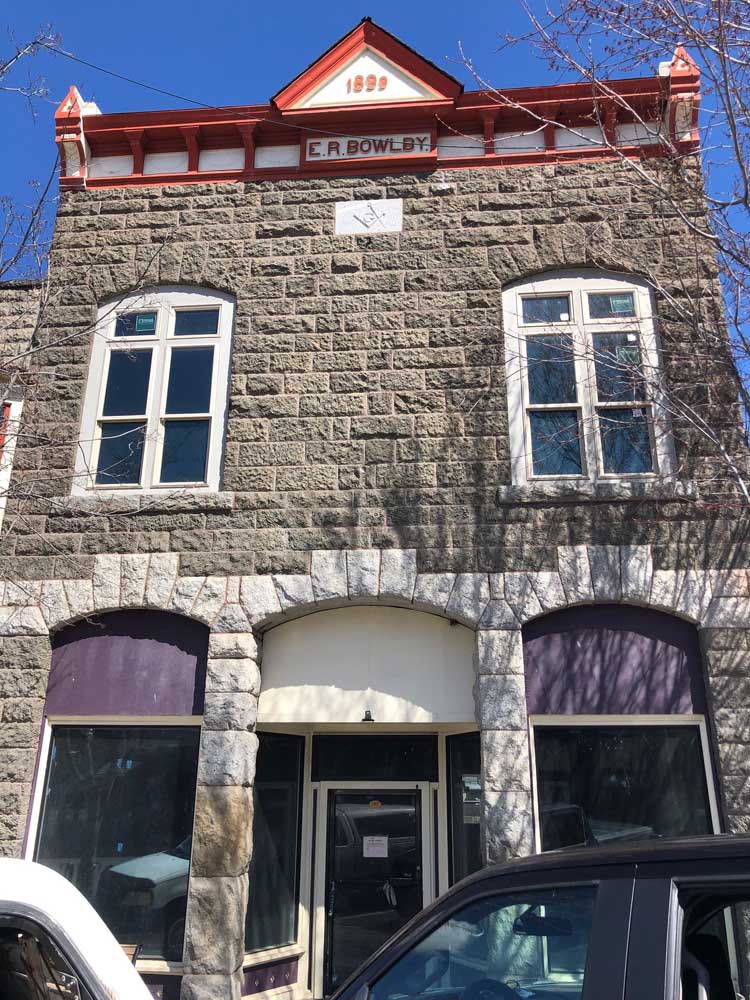From the editor’s desk: Breaking out of our silos to listen
Published 5:00 pm Sunday, January 14, 2024

- Fishtrap’s new location is in the Bowlby Building in downtown Enterprise. The remodeled location was the site for the 2024 edition of Winter Fishtrap, “Can We Talk?,” which was held Jan. 12-14.
When Beth Estock came to Wallowa County 18 months ago as the pastor at Joseph United Methodist Church, she had a series of conversations with people.
There was one constant in those conversations: “One of the questions I would ask is, ‘If you could wave your magic wand and change one thing about this county, what would it be?’ And, I kid you not, every single person I talked to gave me the same answer. And it was, ‘We seem to have grown more divisive.’”
That was part of the reason why Estock participated in a panel discussion Saturday morning at Winter Fishtrap. The theme for this year’s Winter Fishtrap — “Can We Talk?” — couldn’t have been more timely. The panel discussion, featuring Estock and two other notable locals, Nils Christoffsen of Wallowa Resources and Chantay Jett, the executive director of the Wallowa Valley Center for Wellness, carried an equally timely title: “Working Together When We Don’t Agree.”
Nationally, as a glance at most any news source will tell you, polarization is on the rise. So it’s no surprise that Wallowa County has, to a certain extent, felt that.
But there’s also a sense that, in relatively isolated and rural Wallowa County, it’s never been more important that we learn how to talk to each other despite our inevitable disagreements. (This, of course, implies that we also learn how to listen — really listen — to each other.)
And those were the themes that ran through all of Winter Fishtrap, which lured a full house of people into spending the weekend at Fishtrap’s headquarters in downtown Enterprise. (Another dozen or so folks chose not to brave the wind chills and watched online.)
Jett pointed to social media as one of the factors that has caused us to break into silos, and noted a prophetic speech she heard five years ago — before the pandemic — from the author and professor Brené Brown: “People are dividing themselves into small factions of folks that only believe what they believe in,” Jett recalled Brown saying. “And the groups are getting smaller and smaller and smaller.”
(Jett also recalled another prophetic moment from years ago, from a friend who had just purchased a BlackBerry smartphone: “And she held it up and she’s like, ‘Mark my words. This is going to be the demise of us as humans.’”
Christoffersen, who has been in the middle of some heated meetings recently, reported signs of hope: After large meetings over issues such as housing and energy planning turned divisive, he took the time to have smaller conversations afterward with some of the participants. In those conversations, he said, “It was very obvious that there was still friendship and respect. And the more we talked (there was) an understanding that we actually did have a fair bit of alignment in terms of our vision and values.”
Which is not to say that any of this — talking (and, more importantly, listening) — will be easy, especially as we head into a year that will lure us into increasing polarization, and tempt us to seek out ever-smaller silos.
But that doesn’t mean it can’t happen. Wallowa County is a place that can put a premium on communication, where we understand that the person with whom we have a disagreement remains a neighbor and a friend — and that we share considerable common ground.
“Can We Talk?” was a timely reminder of that fundamental truth.
I’ll have a story about the panel discussion in Wednesday’s edition of the Chieftain — it might look very much like this letter from the editor — and might also come up with an editorial about the event.
And we have plenty of other content planned for this Wednesday’s Chieftain (and, of course, stories will be posted on our website, wallowa.com, as soon as they’re ready). Ann Bloom has a profile of the Wallowa County musician Amy Fairchild, who’s been able to combine her love of children and musical theater into a career; I held the story last week for space, but it’ll run this week. The Wallowa County Farmers Market has its eyes on a new location in Joseph and brought its proposal to the Joseph City Council last week; we’ll have that story.
Kellee Sheehy, a familiar face in the county, is tackling a new job as the development director for the Nez Perce Tribe’s Homeland Project, and she has big plans; that story, by Bill Bradshaw, already is online. The Northeast Oregon Economic Development District has won a state grant to help with a program that seeks to bolster the entrepreneurial ecosystem in Wallowa County; it’s an intriguing project, and our new reporter, Daniel Brooks, is working on that story.
All of this is part of the Chieftain’s efforts to cover Wallowa County news to the best of our ability. As always, if you have a comment or question about the Chieftain, or want to suggest a story idea, email me at editor@wallowa.com or mmcinally@wallowa.com.
If you haven’t already, take a moment to register your subscription for digital access of the Chieftain. Call 541-963-3161 to talk to a member of our customer service staff, who will be happy to walk you through the process. It’s easy, takes just a few moments to set up and allows you to take advantage of our e-edition, app and website delivery along with your print subscription.
Finally, let me take this opportunity to once again thank the Chieftain’s subscribers: It would be impossible for us to do this vital work without your support.
Mike McInally is the editor of the Wallowa County Chieftain. You can email him at editor@wallowa.com or mmcinally@wallowa.com.









